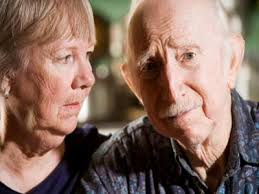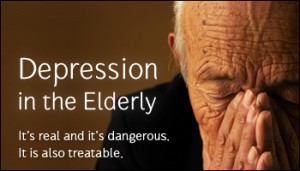Research shows that elderly depression is a common, widespread problem. Adults over age 60 are five times more likely to be depressed or suicidal than younger people. Men are more likely to commit suicide than women. Depression isn’t a normal part of getting old. Symptoms can be confused with what is part of the normal aging process and so aren’t recognized or are ignored. Learning the common causes of elderly depression can help you and someone you love.
Here’s 5 common things related to elderly depression:
- Health problems. They’re different than when you were young and there’s more of them. Rheumatism. Arthritis. Diabetes. Heart disease. Cancer. Dementia and Alzheimer’s disease. The older you get, the greater your risk of having one of these. Feelings are often ignored because controlling physical pain is the patient’s main focus. Usually there’s more than just one health issue, so feelings associated with depression can be mistaken as symptoms of something else. Disease can mask depression.
- Medications can cause depression. Depression is the most common side effect of medications and it’s one that you often hear about in commercials. “If you notice any signs or symptoms of depression while taking this medication, be sure to contact your doctor.” Good advice. Drugs don’t work the same for everyone. Drugs can also interact with each other in bad ways, causing depression. It’s a good idea to keep a list of all your medications handy for your doctor and loved ones.
- Grief over the loss of a spouse or loved one. This is the biggest contributor to suicide among men. Loosing a spouse leaves the surviving partner feeling empty and alone. Some will feel abandoned because their adult children have their own lives to worry about. When a couple gets separated by death, the survivor often holds off from dating. The chances of reconnecting with another person the same age with similar interests is fairly low. This leads to isolation and feeling like you’re just drifting through the day.
- Loss of independence. Imagine not being able to do what you want to when you want to! The physical loss of mobility is a big life changer. Being forced to increasingly rely on others to do daily tasks also makes you feel useless and not in control. Big life changes like moving into a nursing home definitely can leave you feeling like you have no control over your life. This event causes stress, heartache, and even heartbreak.
- Reduced sense of purpose. Having a purpose means different things to people. Institutions often reduce a person’s sense of purpose. Even if you’re living independently, you can feel useless. My uncle felt his daily purpose was reduced to walking to the store for cigarettes and gossiping with friends. He started to feel his life meant something again when he became a babysitter for a friend’s granddaughter. His daily purpose made him look forward to getting up each day.
TAGS: elderly depression, mental health, geriatric health



